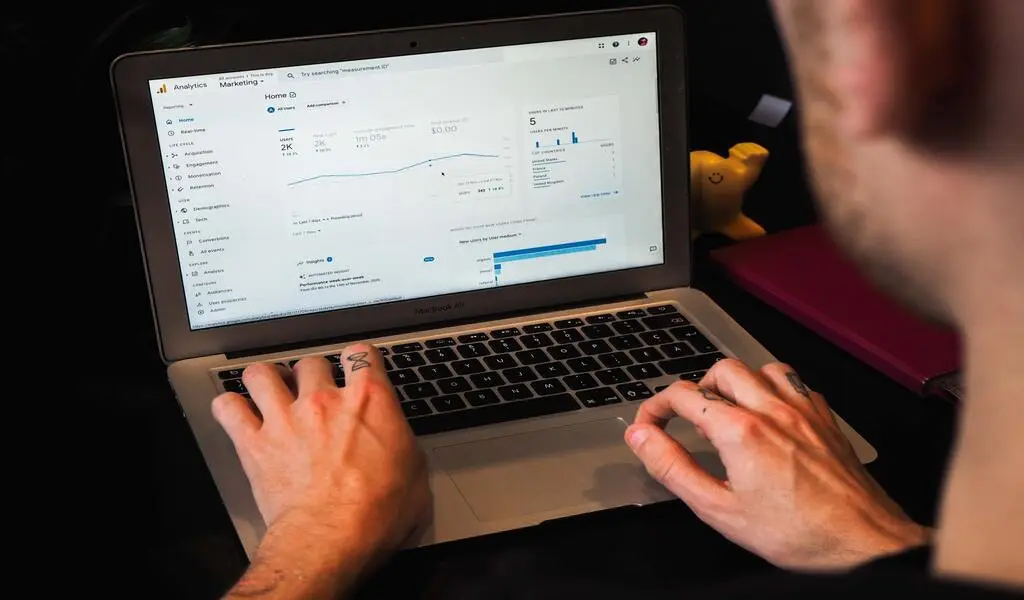Tech
Twitter Labels NPR “State-Affiliated Media”

Twitter has labeled NPR, the National Public Radio, as “state-affiliated media” on the social media platform, which some liberals feared could weaken public trust in the government-funded news organization.
National Public Radio said it was disturbed to see the description added to all of its tweets, and its president and CEO, John Lansing, called it “unacceptable for Twitter to label us this way.”
It was unclear why Twitter changed its policy. Elon Musk, the founder and CEO of Twitter, cited a definition of state-affiliated media in the company’s principles as “outlets where the state exercises control over editorial content through financial resources, direct or indirect political pressures, and control over production and distribution.”
“Seems accurate,” Musk responded to NPR on Twitter.
The United States government funds NPR through grants from federal agencies and departments and the Corporation for Public Broadcasting. According to the firm, it amounts to less than 1% of NPR’s yearly operational budget.
Until Wednesday, however, the same Twitter policies said that “state-financed media organizations with editorial independence, such as the CBC in Canada, BBC in the United Kingdom or National Public Radio in the United States, are not defined as state-affiliated media for this policy.”
.@ElonMusk Is a ‘Hero’ for Exposing @NPR as State-Affiliated Media@TuckerCarlson: “… requesting details about what in particular might have led to the new designation, @Twitter‘s press account auto-replied with a poop emoji 💩.” pic.twitter.com/bZOevuNu0v
— The Vigilant Fox 🦊 (@VigilantFox) April 7, 2023
On Twitter’s website, National Public Radio has been removed from that sentence. Twitter’s press office reacted with an automatic poop emoji when asked for a response.
The decision comes just days after Twitter removed The New York Times’ verification check mark.
“Millions of listeners rely on NPR and our member stations for the independent, fact-based journalism we provide,” Lansing said. “NPR supports free speech and holding the powerful accountable.”
In urging Twitter to change its decision, the literary organization PEN America emphasized that National Public Radio “assiduously maintains editorial independence.”
According to Liz Woolery, PEN America’s digital policy leader, Twitter’s decision is “a dangerous move that could further undermine public trust in reliable news sources.”
Karine Jean-Pierre LAVISHES Praise On Definitely Not State-Affiliated
Tech
Nintendo Switch 2: Rumors, Release Date, Specs, Games, Price, and More in 2025

After seven years, 130 million systems, and over 1 billion games sold, Nintendo is apparently preparing to release new hardware. In this article, we’ll review everything we know about the Switch 2 (or whatever the next console is named) and guess at Nintendo’s next system.
It discusses the system’s likely form factor, the Switch 2’s release date, price, launch games, backward compatibility, and more. For the purpose of convenience, we’ll refer to the new system as the Switch 2, though based on Nintendo’s history, it’s probable that the console will be given a new, original moniker.
Some predict Nintendo to unveil and ship the Switch 2 around 2024, although a more recent source suggests that a 2025 release date is possible. The Switch, released in 2017, was a well-received and economically successful console, but fans are constantly looking for something fresh and exciting, and Nintendo is known for delivering.
In 2021, Nintendo executives stated that the Switch was in the middle of its lifetime. Well, it’s now 2024, and it’s reasonable to presume that the Switch has reached a later stage in its existence, possibly reaching the end. There are still a lot of unresolved questions about the Switch 2, but for now, here’s what we know.
Nintendo Switch 2’s rumored release date
We do not know for sure. The Switch debuted in March 2017, but there is no assurance that Nintendo will follow the same strategy with its next piece of hardware. The Wii and Wii U, for instance, were released in November.
One notion is that Nintendo would release the Switch 2 in the first half of 2024 to address any potential stock shortages before the crucial holiday shopping season when Nintendo wants to ensure adequate supply in the market.
Earlier this year, an official press release from GameShark’s most recent encounter revealed a September 2024 release date for the Switch 2. However, this is unlikely to be authentic.
According to one analyst, Switch 2 will come in 2024 with an 8-inch LCD panel, presumably a step down from the smaller OLED screen in the previous edition.
According to recent sources, Nintendo has postponed the debut of the Switch 2 until 2025. Following the revelation of these predictions, Nintendo’s stock price collapsed. Industry watchers observed that if true, it would present a “fairly devastating” picture for the gaming sector in 2024.
Switch 2: Potential Specifications
One of the most unknown aspects of Nintendo’s next piece of hardware is what it will be. According to former Nintendo employees, the new device would be similar in size to the Switch and may be used as a handheld or docked to a TV.
Nintendo has not revealed any details regarding its upcoming system, stating that it aims to “surprise and delight” people. For now, we can only speculate and make predictions.
According to Digital Foundry, the Switch 2 may employ Nvidia’s new custom version T239 CPU. The site built a PC based on what it thought the Switch 2’s specs will be and discovered that it could run Death Stranding at 1080p with an average frame rate of 35 fps.
Switch Two Games with Backward Compatibility
Nintendo is widely expected to develop a new Mario Kart game for their next home system; there are few safer bets in gaming. According to a report, Mario Kart 9 will include a “new twist,” which fans are excited to discover.
If a new Mario Kart game is in development, it would appear to be a good financial decision to make it the launch title for the next platform.
According to a 2023 rumor, several developers have already started developing games for the new Nintendo console, but no official announcements have been made yet.
Fans want to know if the next Nintendo console will accept Switch games. We do not know. However, Nintendo’s past statements regarding the Nintendo Account system transferring over to the next generation may indicate that the company plans to provide some kind of backward compatibility.
A former Nintendo employee believes the Switch 2 will be backward compatible with digital eShop games.
Keep checking back with GameSpot for more details on the next Nintendo console. We’ll update this story as new information becomes available.
Switch 2 Price.
Everything is conjecture at this point because the Switch 2 has not been released. One analyst predicts the Switch 2 will cost $400, with top-tier titles selling for $70. The original Switch cost $300, and its inexpensive pricing undoubtedly contributed to the system’s outstanding commercial performance.
It is unclear whether the next Nintendo system will have a single SKU or many variants at different price ranges.
The projection that game costs will rise to $70 is hardly surprising. After all, Nintendo already paid $70 for Tears of the Kingdom, which was a smash hit at that price point.
Nintendo stated that the current Switch game pricing was a one-time event. However, charging $70 for Switch 2 games would align with the pricing of top firms such as Microsoft, Sony, and third-party publishers.
Switch 2 News.
Nintendo’s earlier consoles featured separate account systems, and players had to create new accounts for future hardware releases. The new Nintendo Account could smooth the move to the next Nintendo console.
Additionally, it “allows us to communicate with our players if and when we make a transition to a new platform, to help ease that process or transition,” Doug Bowser, Nintendo’s CEO, stated.
“Our goal is to minimize the dip you typically see in the last year of one cycle and the beginning of another,” he said. “I can’t speak to the possible features of a new platform, but the Nintendo Account is a strong basis for having that communication as we make the transition.”
Nintendo CEO Shuntaro Furukawa stated in 2023 that the future console would have the same Nintendo Account system as the Switch, so Bowser’s suggestion is not surprising.
Yijia Zhai of Macquarie Group Ltd. told Bloomberg that the next Nintendo system will not be as successful as the Switch.
“We do not think the new console will be as successful as the Switch, and we see potential profit-taking after the announcement,” Zhai said, adding that Macquarie had lowered Nintendo’s stock analysis to “neutral.”
Meanwhile, Goldman Sachs analyst Minami Munakata predicted that the latest Nintendo hardware would not improve Nintendo’s total addressable market. However, the company isn’t committed to that idea and says its projection might change if the system “turns out to be new concept hardware rather than a successor along the same lines as the Nintendo Switch.”
A platform that isn’t as successful as the previous one may not convey the full story, and it’s not necessarily bad news for Nintendo. The Switch, of course, did extraordinarily well in terms of hardware and software sales. And this accomplishment is all the more evident given the Wii U’s poor performance.
Nintendo has not stated when it plans to introduce new hardware, but some speculate that an announcement could coincide with Nintendo’s fiscal schedule.
Nintendo’s new fiscal year begins on April 1, thus some are expecting an announcement shortly before then to assist boost the stock price and generate momentum for the following quarter. Nintendo’s stock recently hit a new high, and some analysts predict even better gains if the company does indeed announce new hardware shortly.
Tech
Top Free SEO Tools for Freelancers in 2024

Free SEO Tools for Freelancers: A freelancer must understand his or her market, competitors, and customers to consistently earn a sustainable income and maintain an edge in the race for freelance talent.
The competition is fierce, and the freelancer market is becoming saturated, making it more difficult to secure gigs and attract clients. With more than half of the U.S. workforce turning to side hustles as a primary or secondary source of income to help manage soaring living costs, there are approximately 1.57 billion freelancers worldwide.
Because of this, freelancers should have SEO tools in their toolkit to gather useful data that will assist them in making informed decisions.
Using this technology allows freelancers to identify new product or service ideas, assess search trends to identify new product or service ideas, and remain relevant in today’s conversations to keep their audience (for their brand) and customers engaged on social media and their websites daily.
Nevertheless, you decided to become a freelancer because you can barely make ends meet, and with the recent spike in mortgage prices, you are in a tough spot financially.
If you are starting and trying to launch your side hustle (or main hustle) with as little capital as possible, investing in comprehensive SEO packages such as Semrush may not be your first move.
It is good news that there are free SEO tools that can be just as effective, at least to begin with- depending on what they are being used for.
To begin with, what exactly is SEO, and why is it so important?
What Is SEO And How Does It Work?
SEO refers to ensuring your web pages and content are well-optimized for search engines, particularly the most popular ones, such as Google and Bing.
Once you learn how to use SEO effectively, you can position your brand in front of thousands, if not millions, of potential customers. Google dominates the search engine market, processing approximately 8.5 billion daily searches.
If you tap into this pool of potential leads, even if you have less than 1% of the market share, you can secure many high-paying gigs and projects as a freelancer.
Obtaining the coveted top spot in Google search results takes significant effort, but once you develop an SEO strategy and use tools to interpret the data and analytics behind it, you will see results.
These results can include:
-
An increase in website traffic – more clicks and visits that may result in paying customers
-
You will become more credible as a freelancer if you consistently rank well on search engines
-
Leads that are pre-qualified since they are people who are already interested in your products or services
-
The ability to compete with other freelancers and even companies
-
In comparison with paid advertising, it is cost-effective and sustainable over the long term
To optimize your SEO strategy as a freelancer, you need to understand who your target audience is, where they hang out, and what they search for. When you understand their needs, you will be better positioned to appear in their search results on Google or Etsy, for instance.
Free SEO Tools For Freelancers
The following 10 free SEO tools will provide you with useful insights as a freelancer by providing data, research, and analytics. These tools have all been ranked highly by tech review sites such as Trustpilot, Capterra, Product Review, G2, and others, and many offer forever free plans/features, free trials, and paid upgrade options. AI-enhanced features are also available in some cases.
- Serpple
- Google Trends
- Google Search Console
- Google Analytics
- Similarweb
- Rankwatch
- EtsyHunt (for SEO research if you sell digital or physical products on Etsy)
- Moz Keyword Explorer
- Keyword Surfer (by Surfer)—free Chrome extension
- Keysearch (has a collection of free SEO research tools for Etsy, Amazon, eBay, and others)
As with any new tool you use to grow or build a business venture, it is important to evaluate the pros and cons of each, experiment, and determine which tool is most effective.
You might decide to stick with one or use a combination of tools. What is most important is to remember that, ultimately, research of the customers you are serving is essential to being a successful freelancer. You won’t stand out if you cut corners here.
Computer
Cisco Systems Joins Microsoft, IBM In Vatican Pledge To Ensure Ethical Use And Development Of AI

ROME — Cisco Systems, a prominent technology company, has recently joined Microsoft and IBM in endorsing a pledge initiated by the Vatican. This pledge aims to guarantee the ethical development and utilization of artificial intelligence for the betterment of society.
The Vatican said that Chuck Robbins, the CEO of Cisco Systems, had signed the Rome Call document and privately met with Pope Francis.
AP – VOR News Image
Cisco Systems Joins Microsoft, IBM In Vatican Pledge To Ensure Ethical Use And Development Of AI
The promise delineates fundamental principles for the ethical and conscientious utilization of AI. The statement underscores the importance of designing, utilizing, and overseeing AI systems in a manner that prioritizes and safeguards the dignity of all individuals without any form of discrimination and their surroundings. The document emphasizes the importance of transparency, inclusivity, responsibility, impartiality, and security in guiding all AI advancements.
AP – VOR News Image
Cisco Systems Joins Microsoft, IBM In Vatican Pledge To Ensure Ethical Use And Development Of AI
The document was revealed and officially endorsed during a Vatican meeting on February 28, 2020, shortly before Italy implemented strict measures due to the COVID-19 epidemic. The document’s signatories were Brad Smith from Microsoft and John Kelly III from IBM. Universities, United Nations agencies, private enterprises, and nongovernmental organizations have also agreed to participate.
Francis has advocated for an international agreement to guarantee AI’s ethical development and utilization, dedicating his yearly peace message to this subject.
Archbishop Vincenzo Paglia, the president of the Pontifical Academy for Life, who is spearheading the AI program, approved of Cisco’s involvement. He mentioned the IT company’s proficiency in “infrastructure, security, and safeguarding of AI data and systems.”
AP – VOR News Image
Cisco Systems Joins Microsoft, IBM In Vatican Pledge To Ensure Ethical Use And Development Of AI
The global spotlight has been directed towards artificial intelligence due to the remarkable progress made by state-of-the-art systems such as OpenAI’s ChatGPT. These systems have impressed users with their capacity to generate text, photographs, and melodies that closely resemble human creations. However, the advancement of technology has also sparked concerns regarding the potential hazards it presents to employment, privacy, copyright infringement, and even human existence.
SOURCE – (AP)
-
Business5 months ago
Google Will Start Deleting ‘Inactive’ Accounts In December. Here’s What You Need To Know
-
Entertainment5 months ago
Merriam-Webster’s 2023 Word Of The Year Is ‘Authentic’
-
Celebrity5 months ago
Elon Musk Visits Destroyed Kibbutz and Meets Netanyahu in Wake of Antisemitic Post
-
Celebrity5 months ago
Shane MacGowan, Lead Singer Of The Pogues And A Laureate Of Booze And Beauty, Dies At Age 65
-
Entertainment5 months ago
Robert Downey Jr. Won’t Be Returning To The Marvel Cinematic Universe As Tony Stark
-
Politics5 months ago
Former US Secretary Of State Henry Kissinger Dies Aged 100













































